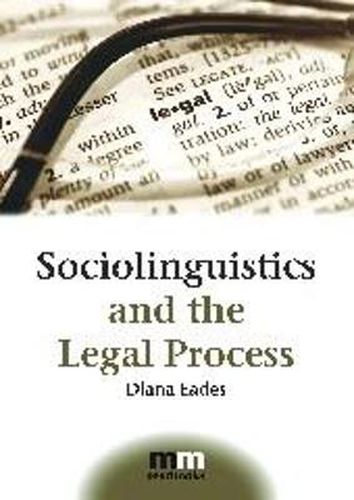Readings Newsletter
Become a Readings Member to make your shopping experience even easier.
Sign in or sign up for free!
You’re not far away from qualifying for FREE standard shipping within Australia
You’ve qualified for FREE standard shipping within Australia
The cart is loading…






Sociolinguistics and the Legal Process is an introduction to language, law and society for advanced undergraduate and postgraduate students. Its central focus is the exploration of what sociolinguistic research can tell us about how language works and doesn’t work in the legal process. Written for readers who may not have prior knowledge of sociolinguistics or the law, the book has an accessible style combined with discussion questions and exercises as well as topics for assignments, term papers, theses and dissertations. A wide range of legal contexts are investigated, including courtroom hearings, police interviews, lawyer interviews as well as small claims courts, mediation, youth justice conferencing and indigenous courts. The final chapter looks at how sociolinguists can contribute to the legal process: as expert witnesses, through legal education, and through investigating the role of language in the perpetuation of inequality in and through the legal process.
$9.00 standard shipping within Australia
FREE standard shipping within Australia for orders over $100.00
Express & International shipping calculated at checkout
Sociolinguistics and the Legal Process is an introduction to language, law and society for advanced undergraduate and postgraduate students. Its central focus is the exploration of what sociolinguistic research can tell us about how language works and doesn’t work in the legal process. Written for readers who may not have prior knowledge of sociolinguistics or the law, the book has an accessible style combined with discussion questions and exercises as well as topics for assignments, term papers, theses and dissertations. A wide range of legal contexts are investigated, including courtroom hearings, police interviews, lawyer interviews as well as small claims courts, mediation, youth justice conferencing and indigenous courts. The final chapter looks at how sociolinguists can contribute to the legal process: as expert witnesses, through legal education, and through investigating the role of language in the perpetuation of inequality in and through the legal process.